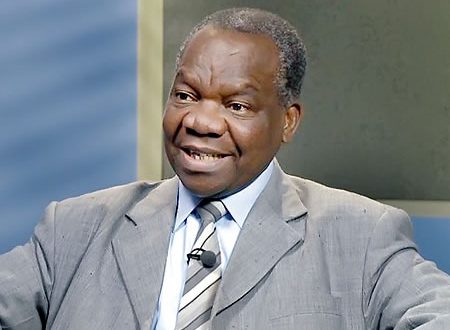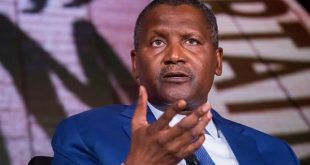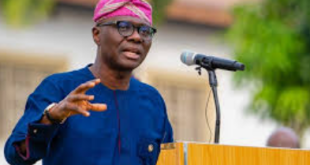Michael Omolewa, Emeritus Professor of the History of Education at the University of Ibadan, is the immediate past Ambassador and Permanent Delegate of Nigeria to UNESCO, and former President of the General Conference of UNESCO. In this interview with LAOLU HAROLDS, he examines, among other things, what Nigeria needs to do to improve the quality of its education generally.
Nigeria has the record of the country with the highest number of out-of-school children in the world. Why has this problem remained with us, and what can/should we do to reverse it?
This is an important question that addresses the subject which is of considerable concern and interest to every Nigerian. Because when children are out of school, the nation loses many potential inventors, business legends, successful politicians and policy makers. Keeping our children out of school sends them to the street and to places where they cultivate anti-social practices that will always harm the wider society. The subject has already caught the attention of the United Nations and the country of Nigeria. I will, therefore, not like to re-invent the wheel in providing a response, but I will depend on the Sustainable Development Goals launched by the United Nations on the completion of the Millennium Development Goals, and the Ministerial Strategic Plan developed by the Hon Minister of Education, Malam Adamu Adamu.
The Ministerial Strategic Plan puts the population of out-of-school children at some 10.5 million, and states that “Nigeria has the highest number of out-of-school children in the world.” The Plan has a holistic approach of resolving the challenge of out-of-school children and the approach is both realistic and commendable.
The society must be aware of the value of education. If people receive education and return home without the appropriate skill and without employment, the society will doubt the value of education and keep their children out of school. They would rather want them to run errands for them, trade on the street or accompany them to their farms and other workplaces. The remedy for this is to make education functional and related to the need of the society: get the learners to learn vocations which the society will always look forward to patronize, and which can then be sold to the community. For example there will always be the need to wear clothes; fashion industry will therefore remain lucrative. Houses will have to be built and carpenters will therefore always be required. No one can do without food, so cooks stewards, and other food specialists and nutrition experts will be required by the society. This was why the University of Nigeria, Nsukka became an answer to the needs of the society when it introduced subjects such as journalism that were unthinkable in colonial Nigeria.
At the policy level, there will be the need for legislative backing: make it compulsory for parents to send their children to school and keep them there till the age determined in the legislation. Let the penalties be severe for defaulting parents who will be made to wake up to be part of the development process of this promising country of Nigeria. Once the subject of the legislation deficit is resolved, there will be the need for advocacy to make the people reason about the long term benefits of keeping children in school, and the disadvantage of the short term solution offered by parents through ignorance and lack of the wisdom of investing in the future of their children and the nation. There is indeed no alternative to learning and acquisition of knowledge and skill. The lesson is taught by the advanced countries.
Where would you put the blame for the lack of quality progress in Nigeria’s education sector?
First, there are several intervening factors that determine the quality of education: the teacher who teaches, the learner who learns, the parents who send their children to places of learning, the content of what is taught, the nature of the assessment of learning, the learning environment, and the policy choices made for learning to happen. If you take the last issue, you will find out that it is the politician who determines (through budget preparation and appropriation) policy formulation, including decisions on how many classrooms are to be built, how many teachers are to be recruited, and provide guidelines for what is to be taught, the language of instruction and the place of instruction at all levels. They cannot be exempted from the determination of the quality of education because we will always reap what we sow.
There is also the matter of parents who don’t bother to monitor the performance of their children once the fees are paid. Such children are left in the classroom and at the mercy of their mates who put pressure on them to make wrong choices in life with respect to drugs, cultism, and development of character. Then, there are the students, many of whom prefer to send text messages and download messages rather than listen in the classroom, unless the teacher is observant. We have over-flogged the question of teachers, overworked and underpaid who have to make do with dilapidated buildings and inadequate equipment and poorly established libraries. And, of course, some then choose to make ends meet by combining other unauthorized, distracting services such as selling items to colleagues and even to the students! In the end, quality is compromised. It is desirable that the public become more interested in the educational delivery in the country.
What have you observed that nations that have made outstanding progress through their education systems are doing that is absent in Nigeria?
What we must learn from the status of education in the industrially and technologically advanced parts of the world is that education has played a most important role, and that the subject has been consistently taken seriously. For example, education was deliberately used in Germany at the birth of the nation to weld together the different component parts of the fragile nation that was born in September 1870. This is because the South was Catholic and Bavarian, while the North was Protestant and Prussian. By the end of the century, the nation had become one nation. This was why it was easy for the two parts separated by the Cold War into the East and West to come together again as one with the collapse of the Soviet Union. Even the newly acquired province of Alsace and Lorraine, which had been acquired from France by Germany following the September 1870 defeat of France, was carefully groomed to acquire the German brand of culture, including the language and culture. During the defeat of Germany in the Second World War, education constituted an important part of the Marshall Plan with which Germany was nursed to greatness again. Education explains the greatness of Russia, Finland and most of the developed nations of the world that have gone to the moon, produced Nobel laureates, obtained high rankings in world measurement of quality and quantity of educational provision and that are now sending rockets, causing discomfort to all parts of the world.
In most nations of Africa, education is not given the deserved attention. Research is considered a luxury and poorly funded and hardly coordinated. Teachers have lost the respect that they once had in the community and many parents who have run into wealth and affluence tend to look down on the teachers. Nigeria should support teachers at all levels. The country should let people appreciate the central role that education plays in shaping the destiny of nations through the engineering of curriculum, and cultivation of basic skills in preparation for the future of the youths and adult population. Teachers should have minimum income to live comfortably and with dignity and retire to meaningful and not laughable retirement benefits. One practical approach to restoring the dignity of research and teaching would be to strengthen the First Generation Universities: the University of Ibadan, the University of Nigeria, Nsukka, Ahmadu Bello University, Zaria, the University of Lagos and the University of Benin, which, like Oxford and Cambridge, and the Sorbonne, constitute the wealth of this great nation of Nigeria.
Finally, it is imperative that the use of the ICT be incorporated into the teaching and learning system to keep the learners up to the world standard. E-Learning is now the order of the day, and anyone that is not involved with it will be left behind.
UNESCO recommends that nations devote 26 per cent of their national budget to education. What areas would you say should receive special attention in the education investment?
I will suggest that special assistance be given to literacy promotion. The benefits of making everyone literate include getting a large pool of people to contribute their potential, ideas and knowledge to national development cannot be underestimated. We should recall the argument by the first Minister of Education of Western Nigeria, Chief Stephen Oluwole Awokoya, who introduced the first Free Primary Education in independent Nigeria, that development would not take place if literacy is denied the adult. As he put it: “these adults are the people who participate in voting for a government, producing the food, building the houses, curing the sick, cleaning the environment, making the clothes, transporting goods and personnel, producing electrical energy, distributing and selling goods, operating and using the financial institutions, administering the government, adjudicating in the courts, and preserving the territorial integrity of the nation.” Investing in literacy would decrease the incidence of rumours and other social ills that arise from ignorance.
Post-literacy will be next as the literate population is made to learn new skills or improve the capability in skills that they already know, employing the new literacy skill to improve the content and quality of the earlier skill. This strategy was employed by the first generation politicians. For example, in Northern Nigeria, there was a vigorous, well-coordinated literacy and post-literacy campaign which was an integrated approach to community development called Gaskiya ta fi kwabo (Truth is more than a penny).
In Western Nigeria, the Action Group sought to limit the neglect of the politically weak. Thus, the deeply entrenched social prejudice against the poor, marginalized and voiceless were visited only periodically at election and campaign seasons. Under the new regional Minister of Education, Stephen Awokoya, a passionate case was made for the continued relevance of the older adult.
A magazine, titled Aworerin which carried fascinating stories of interest to older adults was introduced by Awokoya’s Ministry of Education. In the Eastern Region, Nathan Ejiogu donated his Time, Talent and Treasure (the 3Ts,) into the work of adult literacy, with accomplishments that were internationally celebrated.
The additional funding could also be used to address the dangerous trend of inequitable access to education and ensure that the increase of access does not compromise the value of education offered. The additional funds would thus be used for the expansion of our educational provision from the pre-primary, through primary, secondary and tertiary levels. However the provision of more schools will be matched by the training and recruitment of more teachers, the provision of more books, and of more libraries and more building of community learning centres where education is available on the radio, television, social media and all available means. The open and distance learning mode of learning, to which reference has earlier been made, must occupy a central position for the emerging learners to be fully prepared for the world of work and living in the new century. Education must be offered throughout life and everyone encouraged to learn without ceasing. This will lead to the development of the mind and make everyone remain a potential source of ideas throughout life. The nation will thus be healthier, happier and certainly more peaceful, and the country will be satisfying to live in, attracting tourists and becoming a source of pride to all. When we sing the National Anthem, it will be with joy. The anthem will be made available in all the languages of Nigeria and sung in all homes and schools by the old and the young, the poor and the rich, male and female of all political, religious and ideological orientations, a celebration of increased funding to education for all.
Culled From Tribune
 National Telescope national telescope newspaper
National Telescope national telescope newspaper



